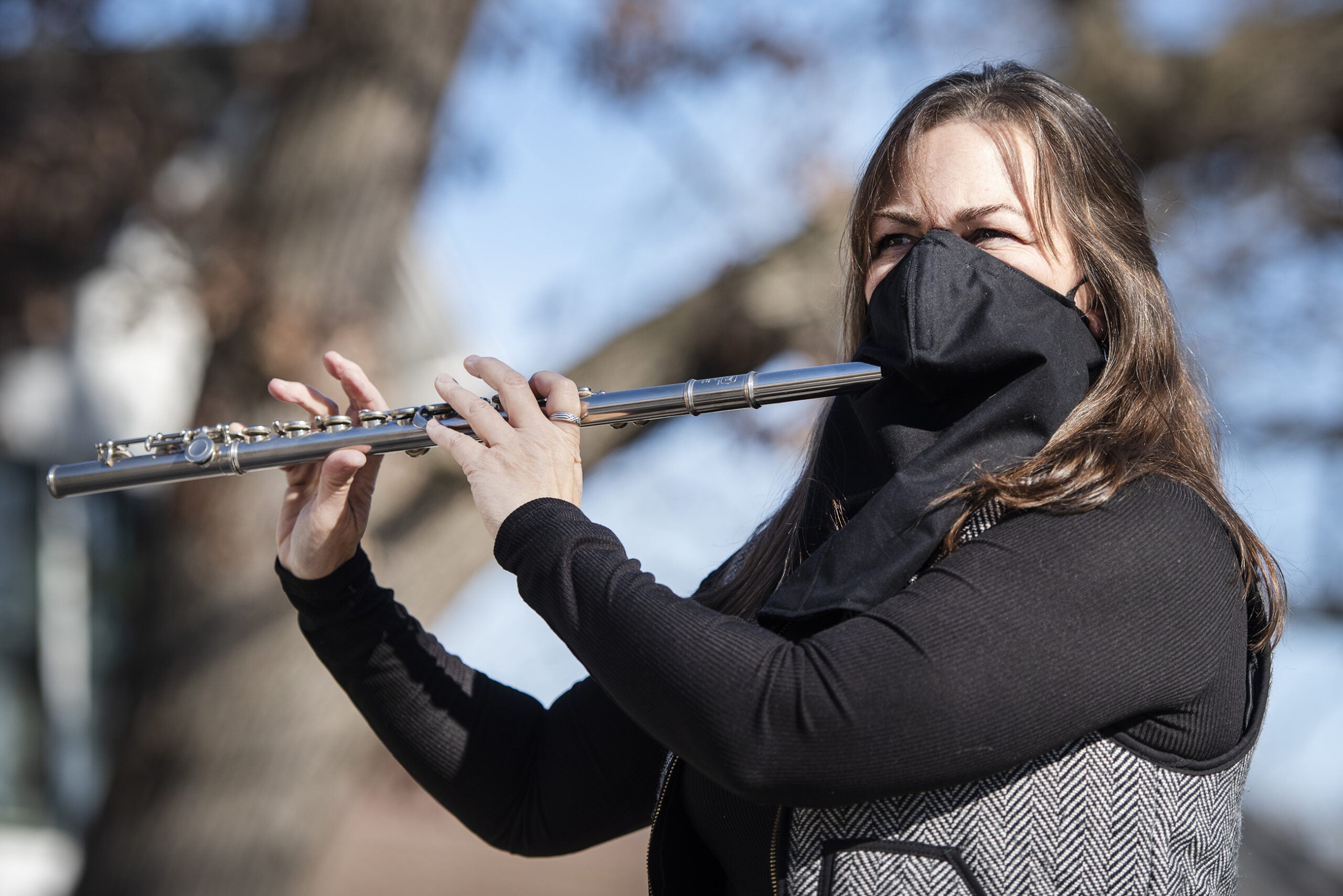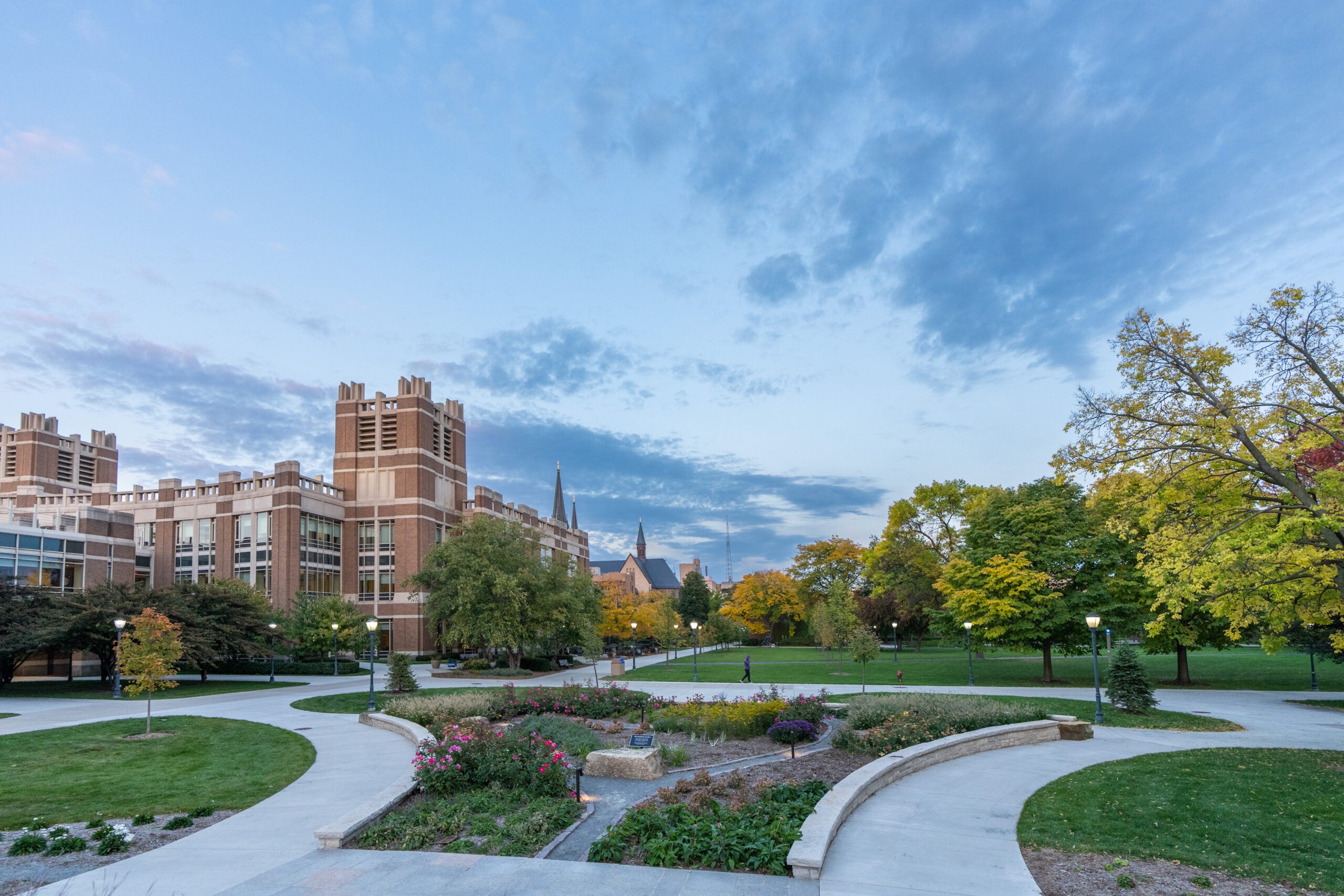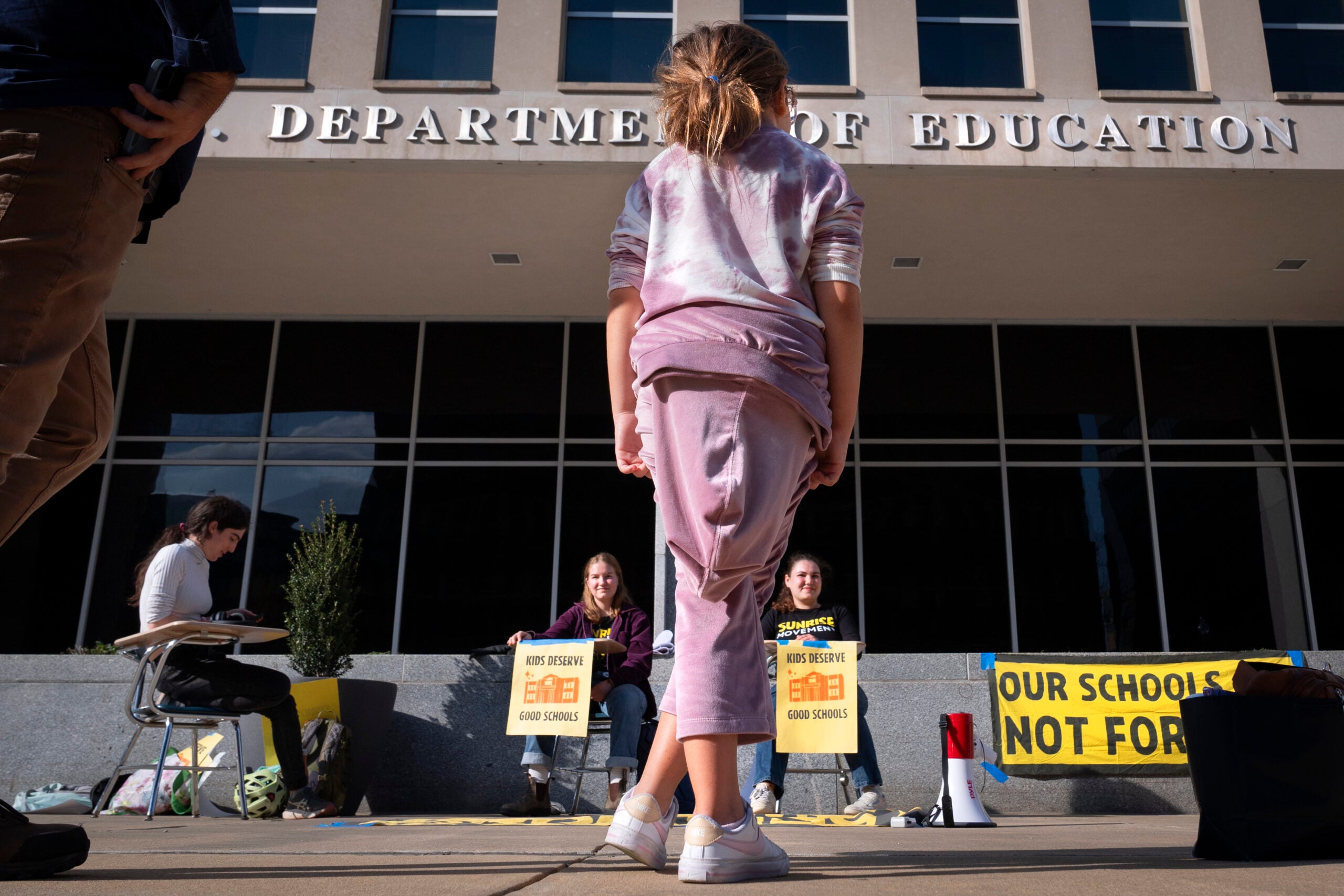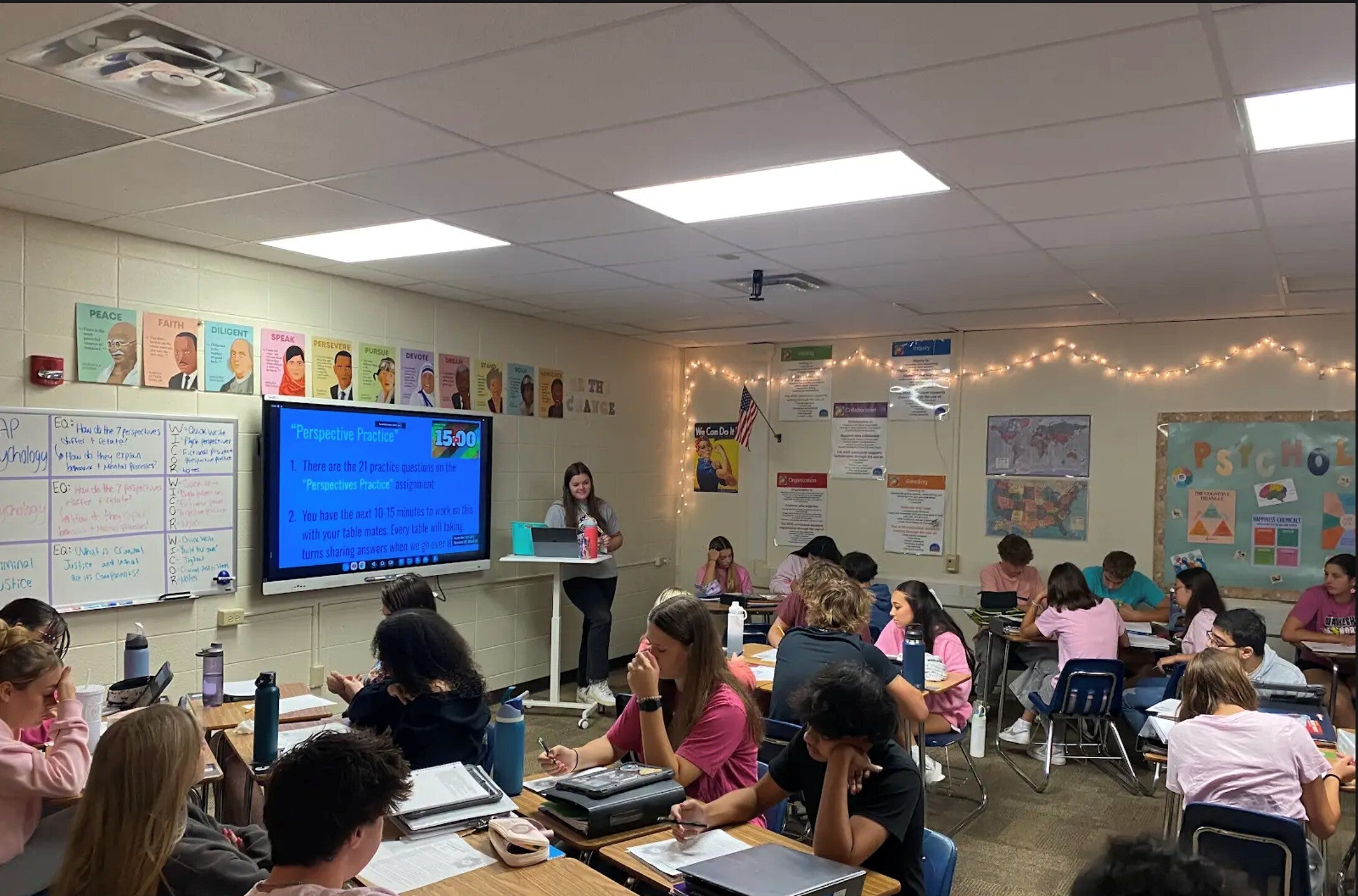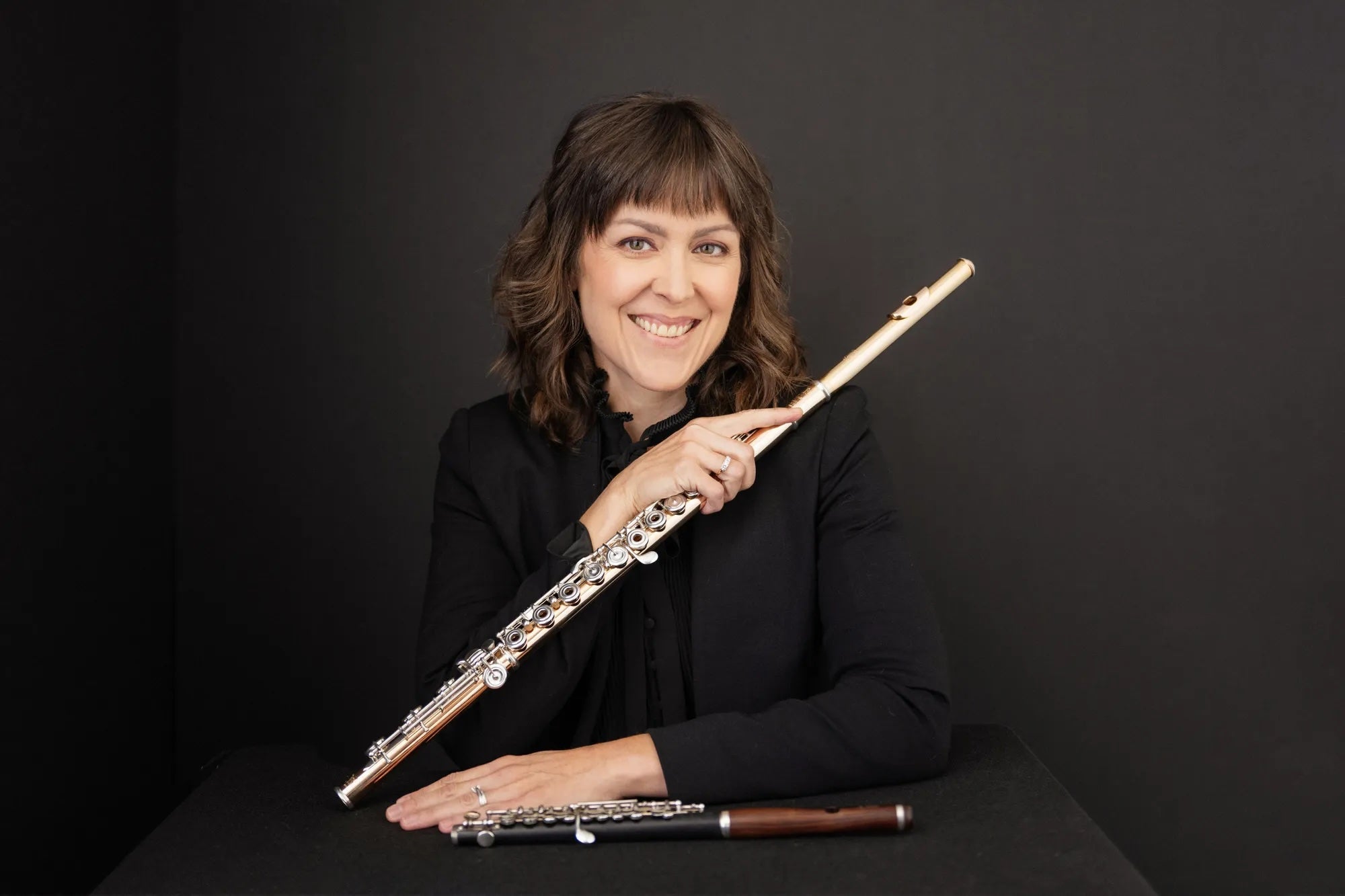Katy Hopkins owns Yahara River Woodwinds in Stoughton. Business slowed at the instrument repair shop when the coronavirus pandemic hit Wisconsin earlier this year, she said.
With the extra time, Hopkins started making masks for her friends and family, then selling them online. Eventually, she began getting another request.
“I had a lot of my musician friends and colleagues contact me, inquiring about making special masks for musicians to play in because their administrators were asking them to try to find ways that they could hold lessons and rehearsals,” she explained.
Stay informed on the latest news
Sign up for WPR’s email newsletter.
That started Hopkins on a monthslong design project. Ultimately, she developed three different masks for woodwind, brass and flute players. Each one was a unique challenge, she said.
“With brass instruments, your lips buzz against a metal mouthpiece, so you can’t have any fabric around your lips when you play,” Hopkins said.
Meanwhile, the fragile reeds on woodwinds can break if they encounter fabric. And flutes were the biggest challenge of all: Flautists blow down over their instrument, not directly into it, sending their breath into the room, Hopkins said.
“So you have to find a way to contain that air, and that’s very different from the other woodwind instruments,” she said.
Hopkins sent prototypes to her fellow musicians, who offered their feedback. It took several months to find the right fit, structure and fabric for each mask, she said.
So far, Hopkins has made several hundred of the specialized masks, even receiving big orders from music departments at the University of Memphis and Capital University. Her Etsy listing was so popular, she had to take it down, but she plans to put it back up soon, she said.
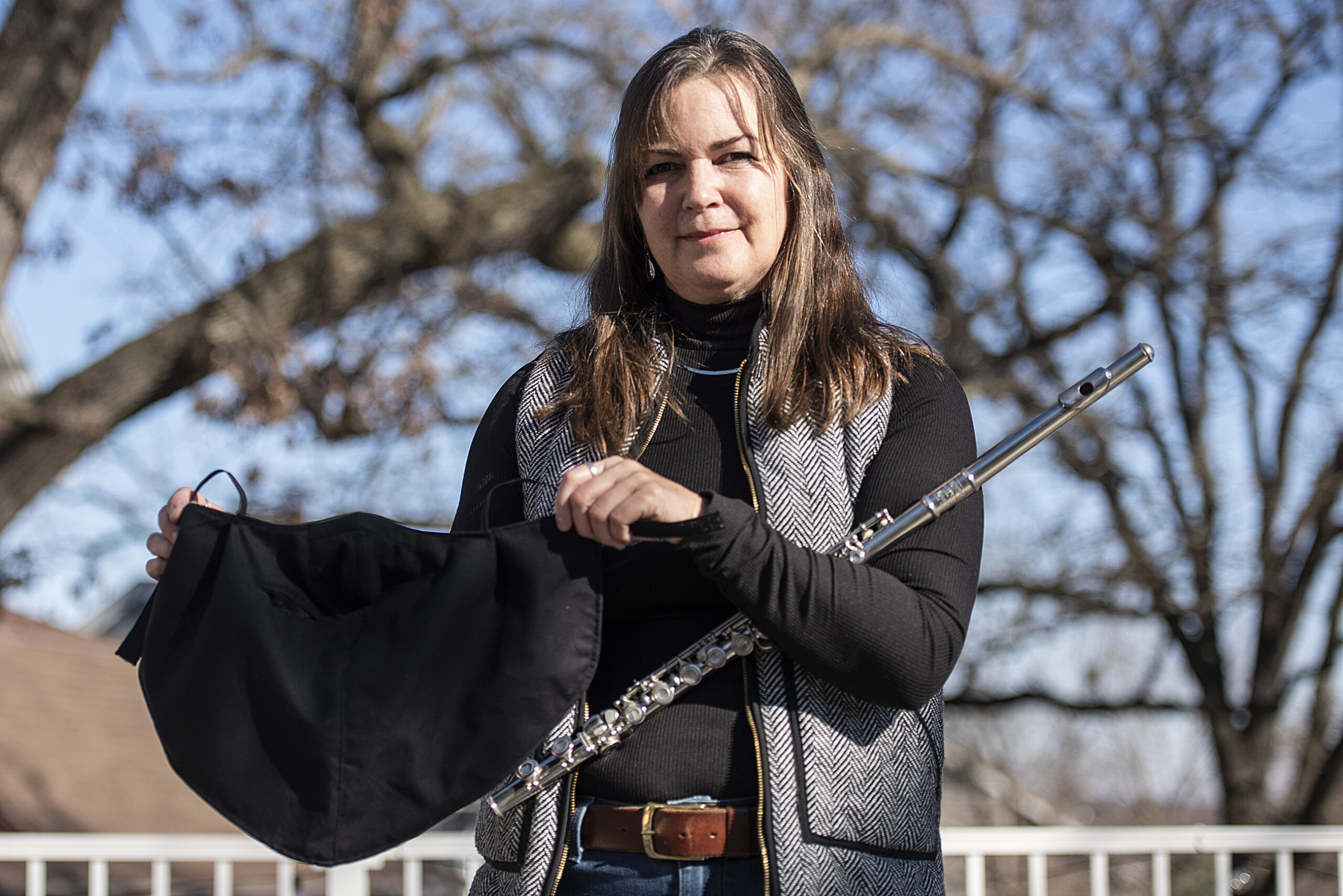
‘It Was Such A Neat Collaboration’
Hopkins’ mask design has also benefited Wisconsin music students.
Brian Pertl is now dean of the Lawrence Conservatory of Music in Appleton, but back in the 1980s, he and Hopkins were classmates there. Her mask designs caught his eye on social media.
“I saw her post that said that she had designed a mask specifically for flute players, and it looked like it was getting really positive feedback, and that was real exciting to me because that was one of our biggest areas of concern,” he said.
Pertl sent a link to the flute professor — she bought a mask and loved it, he said. But Hopkins didn’t have the bandwidth to take a bulk order from Lawrence, so they hatched a plan. Hopkins held a workshop where she taught Lawrence costume design students to sew the masks themselves.
Ultimately, the students made more than 100 masks for their classmates.
“It was such a neat collaboration and real feel good moment in this time of a lot of stress and anxiety to see everybody working together: an alumna working with current students and sharing ideas that were going to help music making continue at Lawrence,” Pertl said.
The conservatory has taken other steps to ensure students can play safely amid the pandemic. The orchestra, which typically includes 100 students, has been divided into groups of 20 or fewer to allow for social distancing, Pertl said. Rehearsals are shorter so there’s more time for the room to air out in between.
Lawrence closed its campus in the spring, but students had the option of remote learning or returning to campus this fall. The majority chose the latter, and things have gone smoothly so far, Pertl said.
He’s pleased that all the university’s precautions, along with the responsible behavior of its students, have allowed Lawrence musicians to play together again, he said.
“The experiences that make this whole endeavor of music making worthwhile are playing with your colleagues,” Pertl said.
Wisconsin Public Radio, © Copyright 2025, Board of Regents of the University of Wisconsin System and Wisconsin Educational Communications Board.
